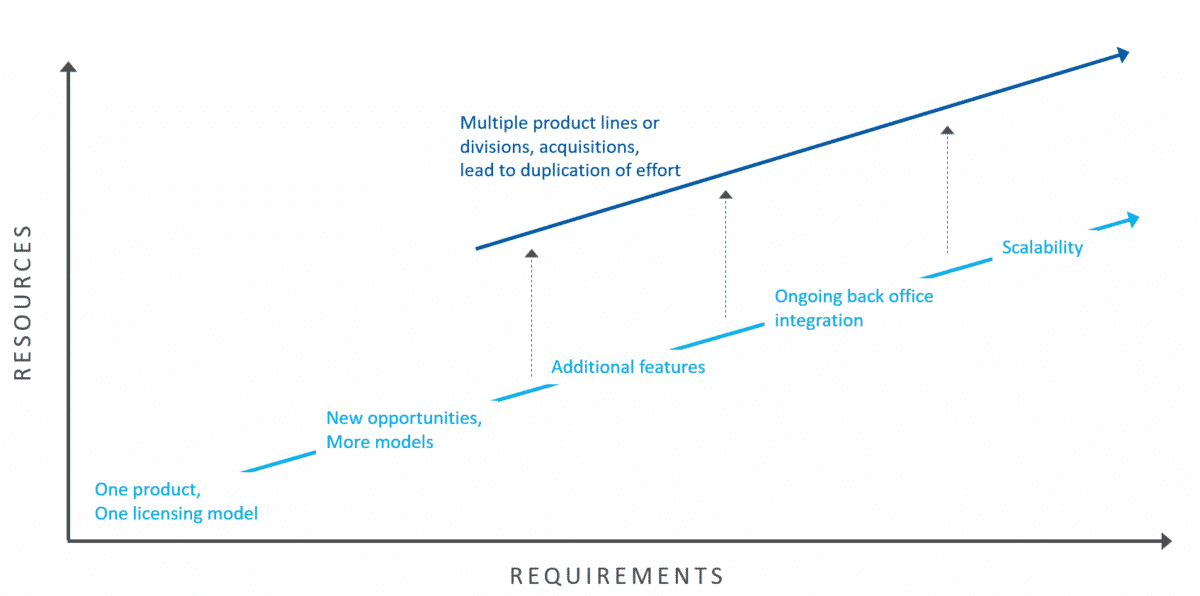Many companies believe software licensing is a simple add-on to their software product development efforts. It’s not hard to see why. Companies see their development teams as highly skilled and more than capable of creating a basic licensing tool. Or, there’s the belief that their licensing situation is unique, and they therefore have no choice but to build their own solution. These are logical reasons but ones that may be putting you at a competitive disadvantage or causing you to miss opportunities to jump ahead. It comes down to how effectively you use your limited development resources.
What starts out simple, becomes complex
Homegrown software licensing projects often get started when requirements are relatively basic. For example, a small number of products, all being sold based on a single business model. But all companies have a vision to grow, and this growth means additional product lines, more customers and in many cases multiple business models. All these factors lead to new functional requirements for their software licensing tool. And it all needs to scale and be integrated with other business systems. Over time, the resources needed to develop, test and support the solution grow exponentially, and suddenly things aren’t so simple anymore.

Put Customer Value First
Customers now expect to receive value from software long after the initial purchase, a trend that’s increasing with the growing use of software subscriptions. To meet this expectation, companies need to focus their software development resources on features and functionality that provide direct value to their customers. Software licensing, while important to a software supplier, provides limited value to the end customer. Homegrown licensing projects distract software suppliers from this customer-value approach and pull them away from their core expertise. Successful software companies look to 3rd party software licensing solutions from companies who are experts in that space. Just as they almost certainly do for the software development tools that help them build their products.
Get Ahead of your Competition
Product management leaders are always looking for ways to improve their roadmaps. It may seem the resources being consumed by a homegrown licensing project don’t make a significant difference, but product managers need to think about what else they could do with those resources.
Ask yourself this question: if your CEO came to you tomorrow and said you’re getting 5-10 additional software developers and asked how you’re going to use them, how would you respond? You’d probably say you’re using them to pull in the delivery of a key feature one of your most important customers has been asking for. Or you’re now able to offer a new technology months before your competition does. Actions that improve customer relationships, move your business forward and keep you ahead of your competition.
Look for an Experienced Partner
Regardless of your business model and licensing needs there are experts who can help. Companies that specialize in licensing and entitlement management will always support a broader range of business models as well as related features such as electronic software delivery, product packaging and automated software updates and renewals.
It’s time to move to a purpose-built software licensing entitlement management solution. Your competitors may already be there.


